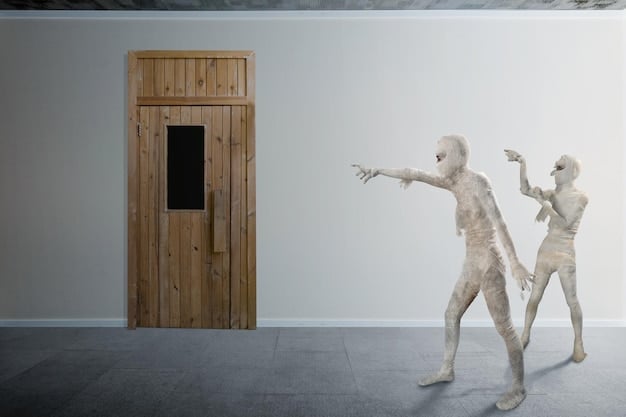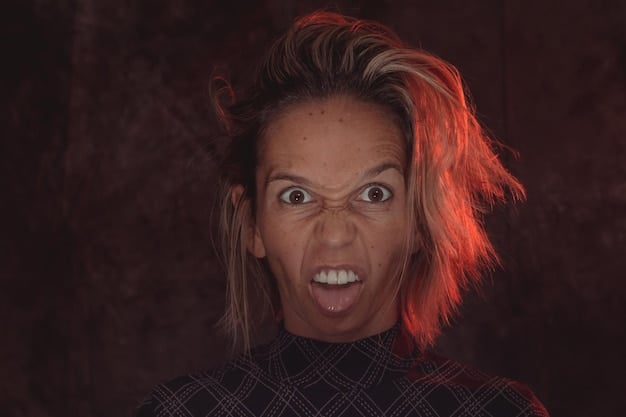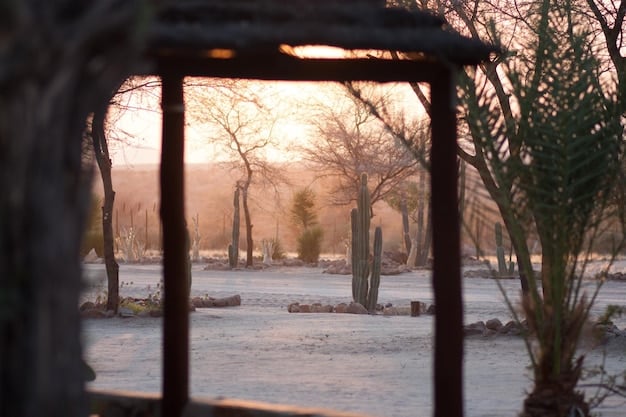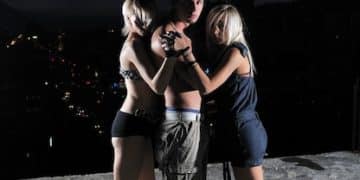The Curse Season 1 Finale: Shocking Twists and Unanswered Questions

The Curse season finale delivers a shocking and divisive conclusion, leaving viewers with lingering questions and unsettling ambiguities about Asher and Whitney Siegel’s ill-fated attempts at ethical real estate and reality TV stardom.
As the dust settles on the season finale of “The Curse,” viewers are left grappling with a potent mix of shock, confusion, and lingering unease, pondering the fate of Asher Siegel and the implications of Nathan Fielder and Benny Safdie’s unsettling exploration of privilege, guilt, and the blurred lines of reality.
Decoding the Discomfort: Unpacking “The Curse” Season Finale
The season finale of “The Curse” has undoubtedly left a significant impact on viewers. What began as a seemingly straightforward satire on gentrification and performative wokeness took a sharp, unexpected turn, culminating in a climax that’s as perplexing as it is disturbing. Let’s delve into the key elements of the finale and try to unpack the underlying themes.
The Unraveling of Asher Siegel
Asher Siegel, played by Nathan Fielder, has always been a character defined by his anxieties and insecurities. The finale sees these traits amplified to an almost unbearable degree, as his desperate attempts to prove his worth and solidify his relationship with Whitney lead to increasingly bizarre behavior.
Whitney’s Descent into Denial
Emma Stone delivers a masterful performance as Whitney, a character whose carefully constructed facade of ethical consciousness crumbles under the weight of her own privilege and self-deception. The finale exposes the extent of her denial, as she grapples with the consequences of their actions and her own complicity in the unfolding chaos.

Here are some key takeaways regarding Whitney’s character arc:
- Whitney’s relentless pursuit of an idealized version of herself blinds her to the genuine impact of her actions on the community.
- Her attempts to control the narrative surrounding their project ultimately backfire, exposing the superficiality of her intentions.
- The finale forces Whitney to confront the uncomfortable truth about her own privilege and the extent to which she has benefited from it.
In conclusion, the unraveling of Asher and Whitney’s carefully constructed reality offers a stark commentary on the complexities of modern morality and the dangers of performative activism.
The Explosive Climax: Interpreting Asher’s Fate
The most talked-about moment of the finale is undoubtedly the bizarre and unsettling climax involving Asher’s apparent levitation and possible explosion. This surreal sequence has sparked numerous interpretations, leaving viewers to question what exactly transpired and what it signifies within the broader context of the series.
A Physical Manifestation of Anxiety?
One interpretation suggests that Asher’s levitation is a physical manifestation of his overwhelming anxiety and the unbearable pressure he places upon himself. As his carefully constructed world crumbles around him, the stress becomes too much to bear, leading to a complete psychological breakdown.
A Symbolic Representation of Guilt?
Another interpretation posits that Asher’s fate is a symbolic representation of his guilt and the consequences of his actions. From the initial “curse” incident to his manipulative behavior throughout the season, Asher’s actions have had a ripple effect, contributing to the overall sense of unease and moral decay within the story.

Several elements tie into this interpretation:
- The inexplicable nature of the event suggests a force beyond rational explanation, hinting at a deeper, more metaphysical punishment.
- The visual spectacle of the levitation serves as a dramatic representation of the weight of Asher’s transgressions.
- The ambiguity surrounding his final fate leaves viewers to ponder the ultimate consequences of unchecked ambition and moral compromise.
Ultimately, the explosive climax serves as a powerful and ambiguous ending, leaving viewers to grapple with the unsettling implications of Asher’s choices and the potential consequences of unchecked ambition.
The Lingering Curse: Themes of Guilt, Privilege, and Reality
“The Curse” delves into complex themes of guilt, privilege, and the blurred lines of reality, making it far more than just a dark comedy. These themes are interwoven throughout the narrative and escalate to a crescendo in the finale, challenging viewers to confront uncomfortable truths about themselves and the society they inhabit.
The Perils of Performative Wokeness
The series critiques the concept of “performative wokeness,” exposing the superficiality of those who prioritize appearances over genuine action. Whitney’s character embodies this theme, as her attempts to project an image of ethical consciousness often ring hollow and self-serving. She constantly seeks validation for her actions, demonstrating a lack of true empathy or understanding of the issues she claims to champion.
The Corrosive Power of Guilt
Guilt permeates every aspect of “The Curse,” driving the characters’ actions and shaping their destinies. Asher is consumed by guilt over the initial “curse” incident, and his subsequent attempts to atone for his perceived transgression only exacerbate the situation. Whitney, too, grapples with guilt over her family’s wealth and her own complicity in perpetuating systemic inequalities. This corrosive power adds depth to the narrative.
Blurring the Lines of Reality
The reality TV element of the series further blurs the lines between what is real and what is fabricated for the cameras. The characters are constantly aware of being observed, and their behavior is often influenced by the desire to present a particular image to the audience. This creates a sense of unease and questions the authenticity of their interactions.
Here are some points to reflect on regarding the show’s overall themes:
- “The Curse” challenges viewers to examine their own complicity in perpetuating systems of inequality and injustice.
- The series explores themes of accountability, forcing viewers to confront the uncomfortable consequences of their actions.
- The ambiguous ending leaves viewers with lingering questions about the nature of morality and the potential for redemption.
In summary, “The Curse” isn’t just a story about a cursed couple; it’s a sharp and unsettling satire that forces viewers to confront uncomfortable truths about themselves and the world around them. The finale’s ambiguity serves to amplify these themes, leaving a lasting impact long after the credits roll.
Analyzing the Cinematography and Direction
The cinematography and direction of “The Curse” contribute significantly to its unique atmosphere and unsettling tone. Nathan Fielder and Benny Safdie employ a variety of techniques to create a sense of unease and to blur the lines between reality and fiction. The show relies heavily on the use of long takes, awkward close-ups, and unsettling camera angles, which amplify the characters’ anxieties and highlight the artificiality of their interactions. These visual choices contribute to the series’ distinctive style.
Uncomfortable Close-Ups
The frequent use of close-ups forces viewers to confront the characters’ discomfort and anxieties head-on. These intimate shots reveal the micro-expressions and subtle nuances of their performances, enhancing the sense of realism and drawing viewers deeper into their emotional turmoil. Furthermore, uncomfortable close-ups are used to exacerbate the tension and overall mood of the series.
Long Takes and Prolonged Silence
The use of long takes allows scenes to unfold in real-time, heightening the sense of awkwardness and tension. The prolonged silences between characters further amplify this effect, creating a palpable sense of unease. These cinematic choices make the narrative far more immersive.
The Use of Mirrors and Reflections
Mirrors and reflections are used throughout the series to symbolize the characters’ fractured identities and their distorted perceptions of reality. These visual motifs reinforce the show’s themes of self-deception and the blurred lines between what is real and what is fabricated.
Several components are important with regards to the cinematography and direction:
- The show’s distinctive visual style contributes significantly to its overall unsettling tone.
- The use of unconventional camera angles and techniques enhances the sense of realism and draws viewers deeper into the characters’ emotional states.
- The cinematography and direction work together to reinforce the show’s themes of self-deception, guilt, and the blurred lines of reality.
Ultimately, the cinematography and direction of “The Curse” are integral to its success, adding a layer of depth and complexity to the narrative that transcends typical television storytelling. By employing a variety of unconventional techniques, Fielder and Safdie have created a visually arresting and emotionally compelling series.
The Supporting Cast: Adding Layers to the Narrative
While Asher and Whitney are the central figures of “The Curse,” the supporting cast plays a crucial role in enriching the narrative and highlighting its underlying themes. Characters like Dougie, Cara, and Abshir each contribute unique perspectives and add layers of complexity to the overall story. They show the interconnectedness of the characters and the world they inhabit.
Dougie: The Enabler
Dougie, played by Benny Safdie, serves as an enabler for Asher and Whitney’s worst tendencies. His own struggles with addiction and his relentless pursuit of fame and validation make him a flawed and often destructive force within their lives. His presence accentuates many of the core themes of the show.
Cara: The Skeptic
Cara, played by Niia Salimi, represents a more grounded and skeptical perspective. As an artist and member of the local community, she offers a critique of Asher and Whitney’s superficial attempts at ethical real estate and their often-insensitive treatment of the people around them. She also challenges the dominant narrative and provides vital counterpoints.
Abshir: The Victim of Circumstance
Abshir, the young boy who allegedly places the “curse” on Asher, serves as a symbol of the marginalized communities that are often exploited in the name of progress and development. His presence highlights the ethical complexities of Asher and Whitney’s project and the potential consequences of their actions.
Here’s how the supporting cast enriches the story:
- The supporting cast provides valuable counterpoints to Asher and Whitney’s perspectives, challenging their assumptions and exposing their flaws.
- Each character embodies a specific theme or idea, adding layers of complexity to the overall narrative.
- The supporting cast helps to create a more nuanced and realistic portrayal of the community impacted by Asher and Whitney’s project.
In conclusion, the supporting cast of “”The Curse”” is essential to the show’s success. By providing unique perspectives and adding layers of complexity to the narrative, these characters help to elevate the series beyond a simple satire and into a thought-provoking commentary on guilt, privilege, and the human condition.
Unanswered Questions and the Potential for Season 2
The season finale of “The Curse” leaves viewers with numerous unanswered questions, fueling speculation about the potential for a second season. While the ending could be interpreted as a definitive conclusion, the ambiguous nature of Asher’s fate and the unresolved emotional arcs of the other characters suggest that there is still more story to tell. This has fans wondering what could be next for the show.
Will Asher Return?
The biggest question on everyone’s mind is whether Asher will return for a potential second season. While his apparent explosion suggests that he is gone for good, the surreal and ambiguous nature of the scene leaves room for interpretation. It is possible that he could return in some form, whether as a ghost, a hallucination, or even a completely different character.
Where Will Whitney Go From Here?
Whitney’s character arc is left unresolved in the finale. Having witnessed the devastating consequences of her actions, she is forced to confront the uncomfortable truths about herself and her privilege. The question remains whether she will learn from her mistakes or continue down a path of self-deception. This question is a major sticking point for viewers of the show.
Will the Curse Continue?
The overarching theme of the “curse” itself remains a mystery, leaving viewers to wonder if it will continue to plague the characters in a potential second season. Whether the curse is a literal phenomenon or a metaphor for the consequences of their actions, it adds a layer of intrigue and suggests that there are still more secrets to be revealed.
Several ideas have been posited about what could happen in a Season 2:
- A second season could explore the aftermath of Asher’s disappearance and its impact on Whitney and the community.
- It could delve deeper into the backstories of the supporting characters, revealing more about their motivations and relationships.
- It could introduce new characters and storylines, exploring different facets of the show’s themes of guilt, privilege, and reality.
| Key Point | Brief Description |
|---|---|
| 🤯 Shocking Finale | Asher’s bizarre fate leaves viewers stunned and questioning reality. |
| 🎭 Performative Wokeness | Whitney’s facade crumbles, exposing the superficiality of her intentions. |
| 🤔 Unanswered Questions | The finale’s ambiguity fuels speculation about a potential second season. |
| 🎬 Cinematography | Uncomfortable close-ups and long takes enhance the show’s unsettling tone. |
FAQ
▼
Asher’s fate is left deliberately ambiguous. He appears to levitate and possibly explode, but the exact nature of the event is never explicitly explained, leaving it open to interpretation.
▼
The “curse” can be interpreted literally or as a metaphor for the consequences of Asher and Whitney’s actions, highlighting themes of guilt and the ripple effects of their choices.
▼
“The Curse” explores themes of guilt, privilege, performative wokeness, and the blurred lines of reality, challenging viewers to confront uncomfortable truths.
▼
The show’s unique cinematography, including uncomfortable close-ups and long takes, heightens the sense of unease and amplifies the characters’ anxieties.
▼
As of now, there is no official confirmation of a second season, but the ambiguous ending and unresolved storylines leave the door open for a continuation of the story.
Conclusion
The season finale of “The Curse” is a polarizing and thought-provoking conclusion to a series that consistently challenged viewers’ expectations. With its ambiguous ending and exploration of complex themes, “The Curse” leaves a lasting impression, prompting reflection on the nature of guilt, privilege, and the search for meaning in a world saturated with performance.





